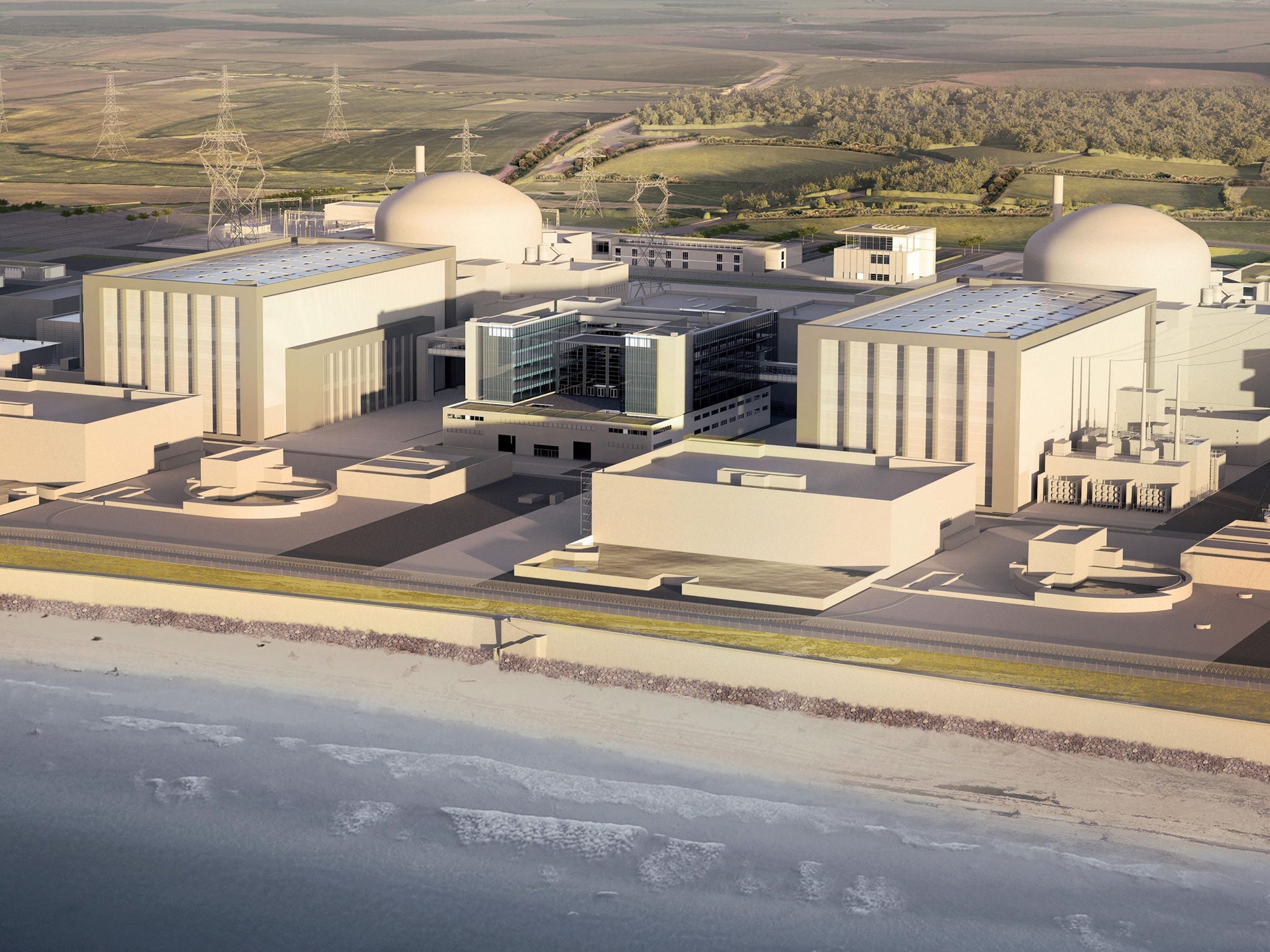Hinkley Point: Putting the brakes on could be prudent in light of security concerns over China
Even if China were not involved, there would still be plenty of reasons for worrying about whether the Hinkley Point project was worth the risk

Your support helps us to tell the story
From reproductive rights to climate change to Big Tech, The Independent is on the ground when the story is developing. Whether it's investigating the financials of Elon Musk's pro-Trump PAC or producing our latest documentary, 'The A Word', which shines a light on the American women fighting for reproductive rights, we know how important it is to parse out the facts from the messaging.
At such a critical moment in US history, we need reporters on the ground. Your donation allows us to keep sending journalists to speak to both sides of the story.
The Independent is trusted by Americans across the entire political spectrum. And unlike many other quality news outlets, we choose not to lock Americans out of our reporting and analysis with paywalls. We believe quality journalism should be available to everyone, paid for by those who can afford it.
Your support makes all the difference.As China’s President Xi Jinping arrived on a state visit to the UK last October, the head of an educational charity warned that the British Government should be wary of hugging a dictator so closely.
Writing on the ConservativeHome website, Nick Timothy, head of the New Schools Network, accused the Government of David Cameron and George Osborne of being so keen to open up the Chinese market for British business, and draw Chinese investment to the UK, that they were not only overlooking China’s dismal record on human rights but were also potentially putting national security at risk.
Of particular concern was the proposed deal that would give Chinese state-owned companies a 33.5 per cent stake in the proposed power station at Hinkley Point, and possibly in two other new nuclear plants. Mr Timothy found it “baffling” that the Government should welcome this when “security experts ... are worried that the Chinese could use their role to build weaknesses into computer systems that will allow them to shut down Britain’s energy production at will.”
Mr Timothy is no longer working in the charitable sector. He is in Downing Street, doing the equivalent job to the one he used to do in the Home Office, as Theresa May’s chief of staff. One Westminster insider once told The Spectator that this man, known as “Theresa’s brain”, influences her thinking “to an almost scary extent”.
Therein could lie a large part of the explanation for the sudden and unexpected decision to put the entire Hinkley Point project on hold, on the very day when the contracts were to be ceremonially signed after the board the French energy firm, EDF, who were to pay two-thirds of the construction costs, had committed themselves to going ahead.
Even if China were not ruled by a secretive dictatorship and were not home of some of the world’s most prolific and skilful computer hackers, there would still be a host of reasons for worrying about whether the Hinkley Point project was worth the risk.
It is a huge undertaking. The scheduled cost is £18bn, and the completion date 2025, but given that so much of the technology is new and complex, no one would be surprised if it ran over budget and late. The risk for EDF, who have to find £12bn of the construction costs, would be immense, which is why the company’s former finance director, Thomas Piquemal, vehemently opposed to the company’s involvement. He resigned in March.
But if it is successfully built, it will be a very nice earner for EDF and its Chinese partners, at the expense of the British public. For 35 years, they would be able to sell electricity to British consumers at a guaranteed price of £92.50 per megawatt hour of electricity, more than twice its present cost. One estimate is that the project could add £230 a year to the average electricity bill.
Some experts in this field, such as Anurag Gupta, nuclear director at KPMG UK, believe that the way forward is to give up on vast investments and build small modular nuclear reactors (SMRs) such as are already in use in India and Pakistan. He argues: “SMRs are not just seen as a way to provide a reliable, secure, affordable and clean source of energy. It’s hoped that the UK could eventually establish itself as a global centre of manufacturing for this technology, forging a burgeoning national industry that serves the rest of the world and creates thousands of new jobs.”
One political factor that Hinkley Point had going for it was the former Chancellor George Osborne and his penchant for grand projects such as HS2 or the “Northern Powerhouse”. Ed Davey, the Lib Dem who was Energy Secretary in the coalition government was also a convert. Neither Theresa May, nor the newly appointed Secretary of State for Business, Energy and Industrial Strategy, Greg Clark, was involved until now.
There are big political risks in delaying or cancelling this project. It threatens relations with China, that vast expanding market, and with France, at the onset of Brexit negotiations that will be difficult enough without getting into a dispute with EDF. But the new Prime Minister and her new Business Secretary evidently decided that being pushed into a decision of this magnitude in their first month in office was the greater risk.
Join our commenting forum
Join thought-provoking conversations, follow other Independent readers and see their replies
Comments